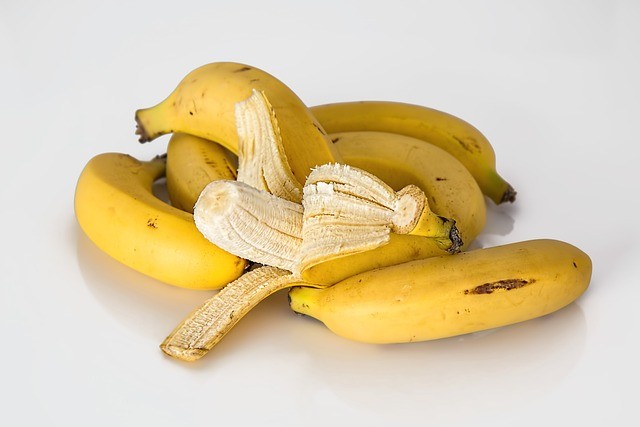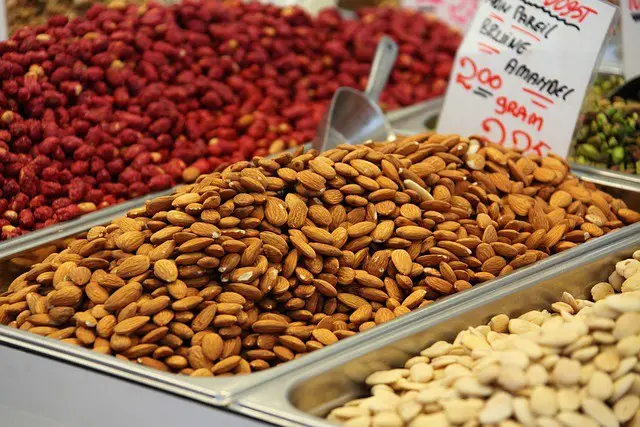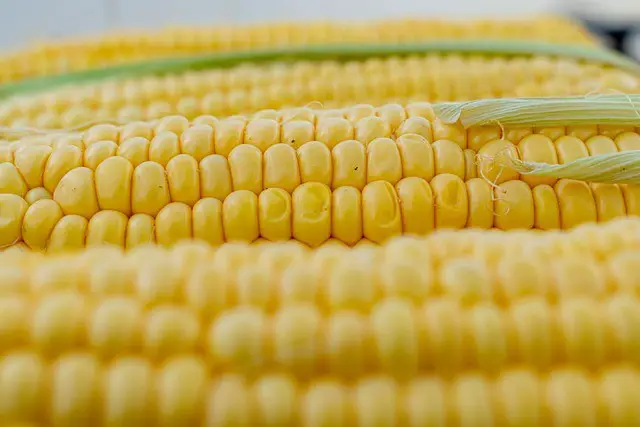Fruits are a part of every healthy diet. This is because they are high in minerals and vitamins that are essential for your overall health. However, some fruits may not fit into other diets for weight loss.
Healthy low-carb diets like the ketogenic diet restrict the consumption of some types of fruits. This is because they naturally have a high sugar content that can kick you out of ketosis. On the keto diet, you can only incorporate low-carb fruits in your meal plan.
Keto fruits include berries like strawberries, blackberries, blueberries and raspberries, avocados, and citrus fruits. Although not all citrus fruits make the cut because some are too high in natural sugars.
We will shift our focus to one citrus fruit today, the orange. This article will highlight the net carbs in an orange, and the different types of oranges and their carb content. After answering whether oranges are keto or not, I will give you low-carb options to substitute this nutritious food in your low-carb eating plan.
Net Carbs in an Orange

Eating keto limits your carb intake to 20-50 grams of carbs per day. This means you should limit any food that is a high source of carbs. Before I get into the net carbs in an orange, let me quickly run you through the types of oranges in the market today.
Types of Oranges
- Navel orange: The most common type of all. Its distinct orange flavor can be described as a bitter-sweet taste. Their name can be attributed to the signature mark at the bottom of this citrus fruit that resembles a belly button. They also lack seeds. This type of orange can be used to make zest for baking, for juicing, and can be eaten raw.
- Valencia orange: Looking for the perfect variety of orange juice, this is it! They have thick skin and are full of citrus juices. This type has seeds. These are either eaten raw or used to make fruit juice.
- Blood oranges: Your winter cheeseboard isn’t complete without these orange slices. The name comes from their red flesh that is juicy with a sweet and tart flavor. They are good as a base for orange marmalade or an addition to desserts and sauces.
- Seville oranges: These are among the bitter oranges variety. They are not sweet and have a bitter, tart flavor. This is why they are the perfect choice for your orange marmalade. These are acidic, so it would be wise not to eat them raw.
- Lima oranges: Also known as acidless oranges, these are extremely sweet and lack any acid. Their skin is thick, and they have seeds. Because of their sweetness and juiciness, they are good for eating raw. They have a short life span because of their lack of acid.
- Mandarin oranges: Not technically oranges, these are small, sweet, and easy-to-peel citrus fruits. They are practically seedless, so they act as good salad toppings and baking ingredients.
You’ve seen the types of oranges you can find at your local grocery store, but can you have them on a low-carb diet?
How Many Carbs in a Medium Orange

Will consuming an orange have you exceeding your daily carb limit on a strict keto diet?
How Many Net Carbs in an Orange?
Net carbs refer to the number of digestible and absorbable carbs in a food. Low-carb diets focus more on carb counting than calorie counting. Here you can tell how a food will affect your blood sugar levels by comparing total carbs vs net carbs. Total carbs account for all the carbohydrates including starch, sugars, sugar alcohols, and fiber in your food.
You get your net carbs by subtracting dietary fiber from total carbs. What is the carb count of fresh oranges?
According to the USDA, one medium-sized naval orange contains 16.5 grams of carbohydrates, 2.8 grams of fiber, and 13.7 grams of net carbs. One Valencia orange contains 14.4 grams of total carbs, 3.02 grams of fiber, and 11.38 grams of net carbs. One medium-sized blood orange contains 15 grams of carbs, 3 grams of fiber, and 12 grams of net carbs.
Let’s discuss the net carbs in an orange in detail.
Net Carbs in One Orange

Which types of carbs contribute to the carb content of an orange?
Starch
Oranges do not contain any starch in them.
Sugars
Fruits are a source of natural sugars. This is the main type of carbohydrate in oranges. Oranges are high in the sugar, natural fructose. They also contain the simple sugars glucose and sucrose. One naval orange contains 12 grams of sugar, with natural fructose sitting at 3.3 grams.
This fruit provides you with up to 6% of your carbs daily value on the 2,000-calorie standard diet. Daily value is the amount of a nutrient a serving of food contributes to your diet. This is too high for a low-carb diet.
Fiber
Fiber does not contribute to your net carb intake. This is a non-digestible and non-absorbable carbohydrate. Fresh fruits are considered excellent sources of fiber, and this applies to oranges as well. Despite being high in dietary fiber, the fruit still contains too many non-fiber carbs that contribute to net carb intake.
Oranges are high in carbs so they do not make it in the keto fruit list. This applies to orange juice as well. One cup of orange juice contains 27 grams of carbs, 1 gram of fiber, 20 grams of sugar, and 26 grams of net carbs.
Despite not being keto, there are numerous health benefits to eating oranges.
Nutritional Benefits of Oranges
- Good for your heart health: Soluble fiber in oranges can help improve lipid profile by lowering serum low-density lipoproteins (LDL cholesterol). This reduces your risk of heart disease.
- Reduces inflammation: Inflammations lead to the development of chronic diseases. Oranges are an excellent source of vitamin C known to possess antioxidant, anti-inflammatory, and anti-cancer properties.
- Regulation of blood pressure: Potassium in oranges plays a role in the regulation of blood pressure.
- Boosts immunity thanks to vitamin C content.
- Good for keeping your skin healthy.
Are there side effects of eating oranges?
Adverse Effects of Eating Oranges

Oranges are high in potassium, so eating too many of them can strain your kidneys. If you are on beta-blocker medications, kindly limit your intake of oranges. Consuming oranges while on these drugs will lower their absorption rendering them less effective.
Citrus fruits are naturally highly acidic, so people suffering from gastroesophageal reflux should restrict their consumption of these fruits.
Keto Substitutes for Oranges
We’ve checked the net carbs in an orange and agreed they are too high for a ketogenic diet. But what can you use as an alternative to oranges, so you don’t miss out on its essential nutrients? You can eat berries instead of a naval orange since they contain the key nutrients you’d get from your orange.
In recipes, replace oranges and orange extracts with:
- Citric acid
- Lemon juice
- Apple cider vinegar
- Dries orange peels
- Orange zest
We’ve known the carbs in oranges, how about some common fruits you consume in your daily diet?
How Many Carbs in Banana?

Bananas are high-carb foods. One slightly ripe banana has 26.4 grams of carbs, 5.31 grams of dietary fiber, 18.2 grams of total sugar, and 21.09 grams of net carbs. This exceeds the daily carb allowance of a strict ketogenic diet.
Carbs in Apple

Apples like oranges do not fit in a ketogenic low-carb diet. According to the USDA, a 100 g serving of red apples contains 14.8 g of total carbs, 2 g of dietary fiber, 12.2 g of sugar, and 12.8 grams of net carbs. The carb content of apples is too high, and its consumption can make you exceed your carb limit.
What Fruit is the Most Keto-Friendly?
Fruits that you can enjoy on low-carb or ketogenic diets include:
- Avocados
- Berries like strawberries, blueberries, raspberries and blackberries
- Lemons and lime
- Cantaloupe
- Bitter Melon
These have a low sugar content which allows you to achieve ketosis for weight loss on low-carb or ketogenic diets.
In Conclusion
Oranges have a high net carbs content which is why they do not make it on the keto food list. Although, they can be beneficial thanks to the essential nutrients they contain. Replace your oranges with berries when looking for fruits for snacking on keto.
In recipes that call for orange juice, you can use citric acid, vinegar, lemon juice, and orange zest as alternatives to oranges. This will add the same acidic and tart flavor that oranges would without compromising your carb intake.
What I’m curious to know is, what is your favorite keto fruit and why?







